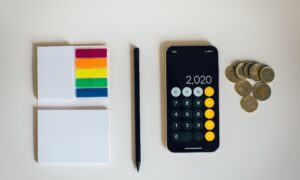The discussions detailing transition from the traditional pattern of transactions around Nigeria’s financial sector is louder than ever. From Lagos to Abuja, every conversation about economic growth seems to circle back to one thing, digital payments. The promise sounds simple enough: cashless transactions, instant access, financial inclusion for millions. But beneath the optimism lies a tougher question. Is the Nigerian economy truly ready to go digital at scale?
In the middle of this transformation is Abdulazeez Baruwa, a senior product manager who is quietly pushing the limits of what a traditional bank can become. At Polaris Bank, he doesn’t just oversee features, he architects change. His strength lies in bringing structure to uncertainty: mapping product launches with precision, translating strategy into timelines, and building financial models that make innovation sustainable.
Under his watch, Polaris rolled out same-day loans and instant card issuance, both accessible directly from a mobile app. For most Nigerians, this is not just a feature; it’s freedom, freedom from paperwork, queues, and the delays that have long defined banking. Abdulazeez Baruwa’s approach bridges vision with execution, showing that progress in finance isn’t only about bold ideas, but about systems that actually work.
Abdulazeez Baruwa’s method is simple but sharp. He trusts data more than instinct and believes that good product design starts with listening to users, not guessing for them. Recounting the steps involved in making instant card issuance, Abdulazeez Baruwa explained that each iteration of the banking app was tested, measured, and refined until customers respond with action, not surveys. Baaruwa notes that such a pilot can be validated with national adoption.
The readiness of Nigerians for this shift is uneven but real, says Abdulazeez Baruwa. Many users adapt quickly, drawn by the simplicity of handling their finances through a phone rather than standing in a branch. Others take longer, constrained by limited internet access, trust gaps, or the learning curve of new tools. The economy mirrors this mix: the urban centers show promise, while rural areas still depend heavily on cash. Yet across both spaces, one thing is clear: people are willing to try what makes life simpler. The appetite for digital solutions is there; what remains is for infrastructure and policy to keep pace.
The balance sheets by the end of the year will tell a lot whether the Nigerian economy is ready for this shift, says Abdulazeez Baruwa. As institutions begin to adopt digital payment channels, a significant cultural shift will follow, it will accelerate Nigerians adoption of digitization and how Nigerian banks think about technology. What once felt like a risky experiment will look like the early foundation of a digital economy taking itself seriously. For Abdulazeez Baruwa, it is not about leading a revolution; it is about proving that small, intelligent changes can make an entire system believe in progress again.



































